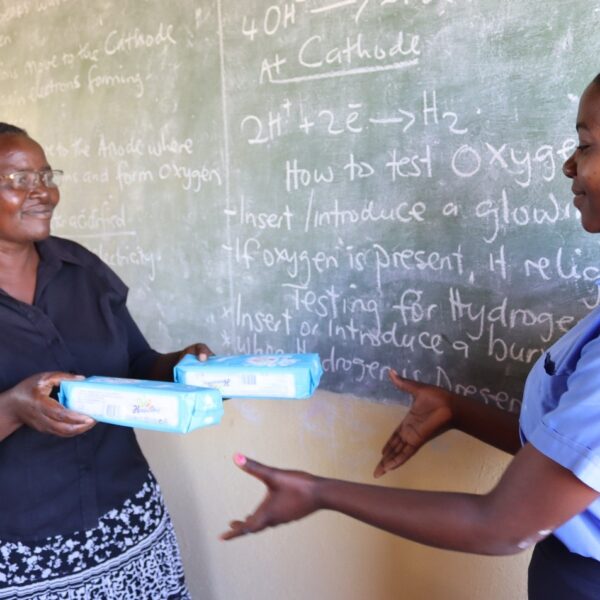Some girls in Buhera often miss school regularly particularly during their menstruation cycle. According to estimates of the United Nations Children’s Fund (UNICEF), about one in every ten school-age African girl didn’t attend school during menstruation or dropped out at puberty due to lack of cleanliness and separate toilet facilities for female students at schools.
In Buhera, girls face difficulty to manage their menstrual periods at school due to lack of sanitary wear and knowledge about hygiene management.
Jennifer,17, from Mabvuragudo High School says girls experienced different feelings including fear, shame, and guilt because of lack hygiene kits and prior information about menstruation hygiene.
“Girls from our school used to struggle during menstruation. Most girls did not have sanitary wear, so it was common for some to miss school for even over a week. Most girls had no proper pants and sanitary wear, so we used cloths, and it was very uncomfortable. At one time, a girl from school was left embarrassed after the cloth fell in class and so most girls preferred to stay at home during their period than face the shame,” she said.
Use of cloths often left the girls vulnerable to period shaming from boys, as most of them could not afford sanitary wear. Others had never used sanitary wear before.
This was compounded by lack of awareness by parents and guardians on the importance of sending the girl child to school due to many cultural norms and religious beliefs that promoted early marriages. Most of them were pushed by poverty.
Jeniffer says that due to poverty and lack of other essential learning materials, she also had to endure school breaks without food. Some girls went home and never came back to school.
With funding from and in partnership with the World Bank, CARE piloted the Social Protection and Wash Interventions to Keep Adolescent Girls in Schools in Zimbabwe project. The project was directly complementing the Government of Zimbabwe’s Basic Education Assistance Module (BEAM) fee waiver program, which pays school fees for vulnerable students in both primary and secondary schools. Under this project, WASH and social protection interventions were used to support adolescent girls grappling with the adverse effects of COVID-19 to return to and stay in school after several waves of school closure in Zimbabwe occurred due to the impact of the virus in the country.
“While I received assistance from the government’s BEAM programme, my family struggled to make ends meet for us to have enough food, uniforms and other school requirements. It was hard to concentrate in school,” said Jennifer.
“Now things have changed through CARE’s support with sanitary wear and cash assistance. I received 9 pants, 26 packets of pads, 10 bars of soap and I even shared these with my sister. I now have a proper uniform, and books to use and my family can now afford food for us to eat. It has boosted my confidence and I am not embarrassed to be among other students. Even other girls now attend school consistently because our parents can now also support us,” Jennifer further said.![]()
![]()



